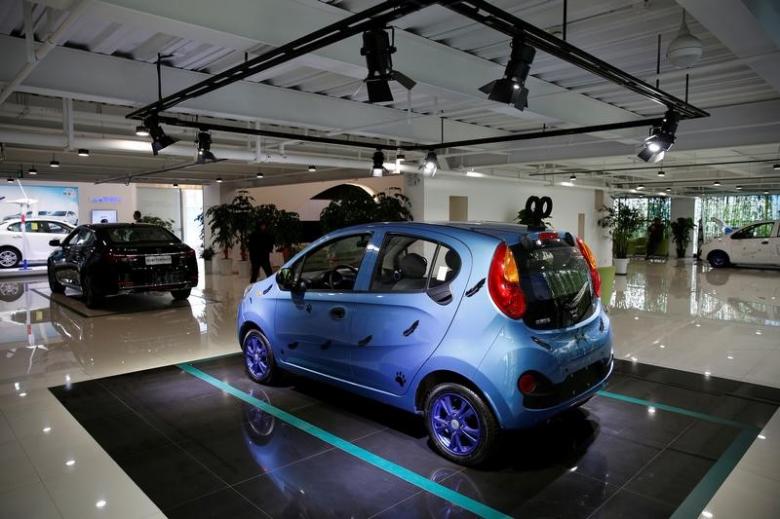China may roll back electric car quotas as industry pushes back

BEIJING – China is considering easing proposed quotas aimed at producing more electric vehicles, as Beijing gets pushback from the automotive industry over the scale and pace of the plans.
If adopted, proposed changes under discussion could see a target of new energy vehicles (NEV) making up 8 percent of sales next year pushed to 2019, two auto executives said.
The changes would lower targets from a draft policy released in September requiring 8 percent of automakers' sales to be battery electric or plug-in hybrid vehicles by 2018, rising to 10 percent in 2019 and 12 percent in 2020.
Any loosening of NEV targets would mark a pull back by Beijing, which has faced opposition to the planned targets as it looks to drive its domestic carmakers to overtake global rivals in the 'green' vehicle sector.
Automakers and industry bodies have said the targets are too tough and could hurt manufacturers' interests. New energy vehicles last year accounted for just 1.8 percent of sales in the world's biggest autos market, according to Reuters calculations based on official data.
"It's normal to make revisions as it's a draft plan," An Jin, chairman of Anhui Jianghuai Automobile Group (JAC Motor), said on the sidelines of the National People's Congress in Beijing.
He said he was aware of talks to revise the quota targets, but said nothing was set in stone. "JAC hasn't been told what revisions might be made to the draft, but I think it is possible the draft will be changed after the discussions," he said.
"Whether the whole market can hit this quota by 2018 depends a lot on the strength of government policy. If it's strong then we should be able to surpass the targets," An said, "(But) if you consider China's infrastructure and the transformation of China's auto sector, then perhaps the pace will have to slow."
TWO PERCENT CUT
Two executives familiar with the plans told Reuters the government was considering options for lowering the requirements.
One idea was to reduce the quota requirement by 2 percent each year, cutting the 2018 requirement to 6 percent, said a China-based government relations official at a major global automaker. It would then be 8 percent in 2019 and 10 percent in 2020.
Another option would be to push back each target by a year, with the 8 percent quota starting from 2019, an executive at a Japanese car maker said.
Both asked not to be named due to the sensitivity of the matter and because the draft was still under consideration.
The overall policy includes quotas for plug-in cars, targets for average fuel economy requirements, and a credit trading system to promote green energy cars while penalizing petrol cars.
The two people said the quota stand-off was tied to a disagreement between the Ministry of Industry and Information Technology (MIIT) and China's top state planner, the National Development and Reform Commission (NDRC).
MIIT, which regulates manufacturers, supports a more flexible credit trading system favored by automakers. The NDRC is more aggressive in promoting a transition to electric vehicles, pushing the introduction of the stricter quotas.
An NDRC spokesman said the body played a "small role" when the draft was open to public for discussion. MIIT did not immediately respond to Reuters' requests for comment. –Reuters







